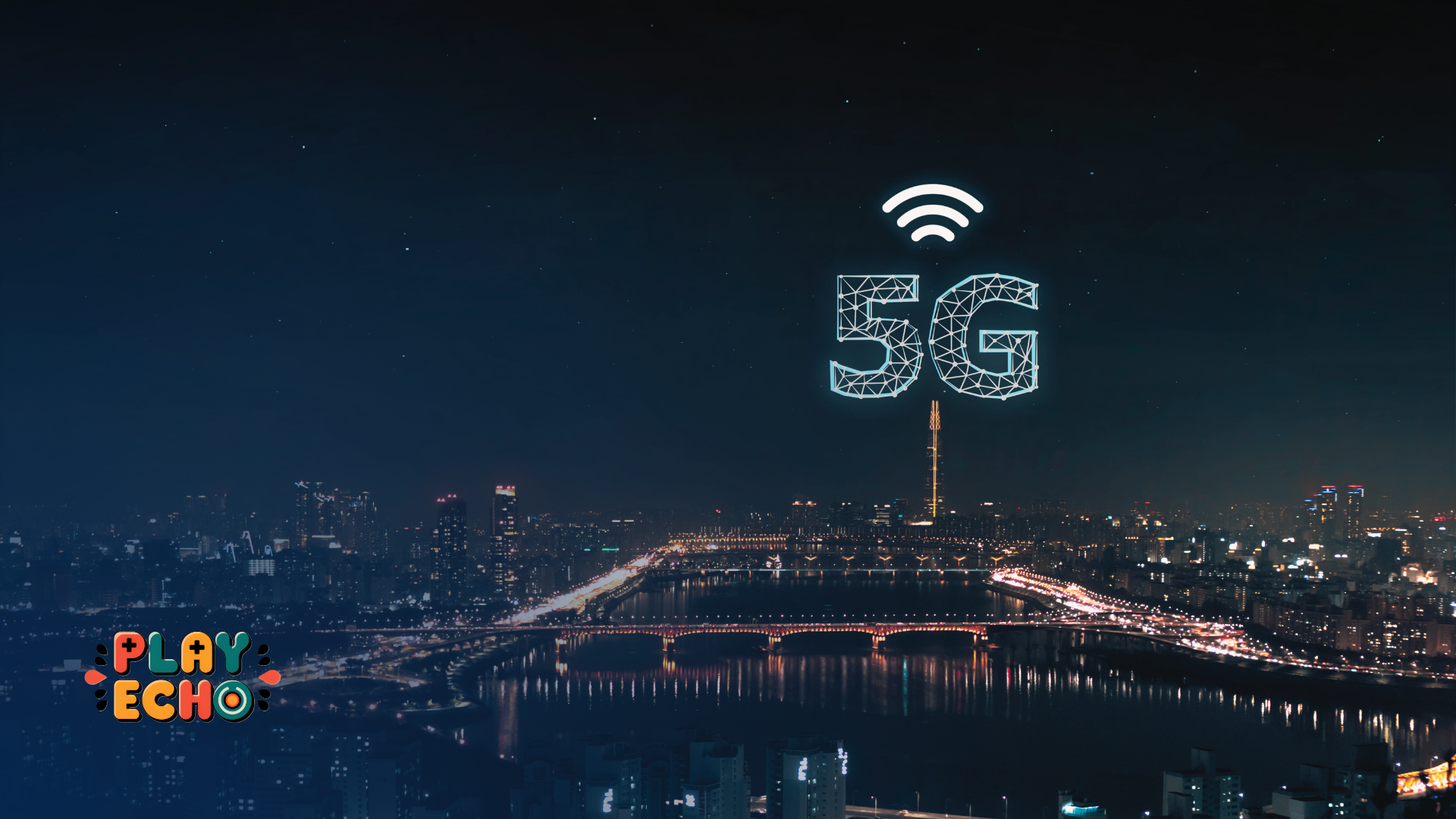
How 5G Is Enhancing Cloud Gaming in 2025
An in-depth exploration of how 5G technology is revolutionizing cloud gaming in 2025, focusing on the improvements in speed, latency, and overall gaming experience.
GAME INDUSTRY
Tama
1/22/2025
5G Revolutionizes Cloud Gaming: A Look into 2025's Gaming Landscape
In 2025, the gaming industry is experiencing a transformative shift, largely attributed to the widespread adoption of 5G technology. This next-generation network is reshaping how players access and interact with games, ushering in a new era of seamless, high-quality gaming experiences that are no longer tied to traditional hardware constraints. According to industry reports, the global cloud gaming market is projected to exceed $8.2 billion by 2025, with much of this growth driven by the capabilities of 5G.
One of the most significant contributions of 5G to cloud gaming is the dramatic increase in data transfer speeds and the substantial reduction in latency. The speeds offered by 5G can reach up to 10 gigabits per second, a significant leap from 4G LTE, enabling the smooth streaming of graphically intensive, high-definition games directly from cloud servers to users’ devices. This capability eliminates the need for players to own high-end gaming hardware, making games accessible to a broader audience. Latency, or the delay between a player’s action and its execution in the game, has also seen remarkable improvements. With latency reduced to under 10 milliseconds in ideal conditions, 5G enables real-time gameplay that is essential for competitive titles such as first-person shooters and fighting games.
The accessibility provided by 5G-powered cloud gaming has also led to a notable expansion of the global gaming community. Players who were previously limited by hardware costs or internet speed can now enjoy high-quality gaming experiences on their existing devices, including smartphones, tablets, and smart TVs. This inclusivity has fostered a more diverse player base, breaking down barriers and bringing gaming to regions where traditional gaming infrastructure was unavailable or cost-prohibitive.
Telecommunications companies are playing a pivotal role in this revolution. Recognizing the symbiotic relationship between 5G and cloud gaming, many have introduced specialized gaming-focused data plans and optimized their networks to cater to gaming traffic. Deutsche Telekom’s “Sora Stream,” for instance, offers over 100 top-tier games accessible via a 5G connection, providing players with real-time, stable connections for uninterrupted gaming. Similarly, Verizon and AT&T have partnered with cloud gaming platforms like NVIDIA GeForce NOW and Xbox Cloud Gaming to deliver premium services tailored to gamers’ needs.
Beyond accessibility and network enhancements, 5G is also facilitating innovations in gaming technology and design. Developers are increasingly creating games that leverage the cloud's capabilities to deliver dynamic and evolving game worlds. With the power of 5G, games can incorporate real-time updates, larger-scale multiplayer environments, and advanced AI-driven interactions that were previously limited by hardware constraints. For example, cloud-based AI systems can process and adapt to player behaviors in real time, creating more immersive and personalized gaming experiences.
Despite the remarkable progress, challenges persist. Ensuring consistent 5G coverage, especially in rural or underdeveloped areas, remains a significant hurdle. Additionally, the increased data consumption associated with cloud gaming necessitates advancements in network infrastructure and data management strategies. Developers must also optimize their games to run efficiently on cloud platforms, balancing performance with graphical fidelity to provide a consistent experience across various devices.
The environmental impact of 5G and cloud gaming is another area of focus. Data centers powering cloud gaming platforms require substantial energy resources. To address this, companies are investing in sustainable practices, such as using renewable energy sources and improving the efficiency of their data centers.
Looking ahead, the integration of 5G with emerging technologies like virtual reality (VR) and augmented reality (AR) promises to further revolutionize the gaming landscape. VR and AR games require extremely low latency and high data throughput, making 5G an essential component in delivering these experiences to mainstream audiences. As these technologies continue to evolve, the synergy between 5G and gaming will unlock new possibilities for immersive and interactive entertainment.
Conclusion
The year 2025 marks a pivotal moment in the evolution of cloud gaming, with 5G technology at the forefront. The synergy between enhanced network capabilities and gaming innovations has not only improved the gaming experience but also reshaped the industry's landscape. As 5G infrastructure continues to mature, the future of cloud gaming promises even more immersive and accessible experiences for players worldwide.
PlayEcho delivers the latest news, reviews, and insights from the gaming world, highlighting local talents and global trends for gamers everywhere.
FAQs
How has 5G improved cloud gaming speeds?
A: 5G offers significantly higher data transfer rates, enabling smooth and rapid streaming of high-definition games without the need for local installations.What impact does reduced latency have on gaming?
A: Lower latency ensures that player inputs are registered almost instantaneously, providing a more responsive and immersive gaming experience.Is specialized hardware still necessary for high-quality gaming?
A: With 5G-enhanced cloud gaming, players can access high-quality games on various devices without the need for specialized gaming hardware.How are telecom companies supporting cloud gaming?
A: Telecom companies are offering specialized data plans and optimizing their networks to handle the increased demand for cloud gaming services.What challenges remain for 5G cloud gaming?
A: Challenges include ensuring widespread 5G coverage, managing data consumption, preventing network congestion, and optimizing games for cloud platforms.
Terms and Conditions
Privacy Policy
PlayEcho
Newest information about game industry and analysis.
Subscribe to our newsletter
© 2025. All rights reserved.








